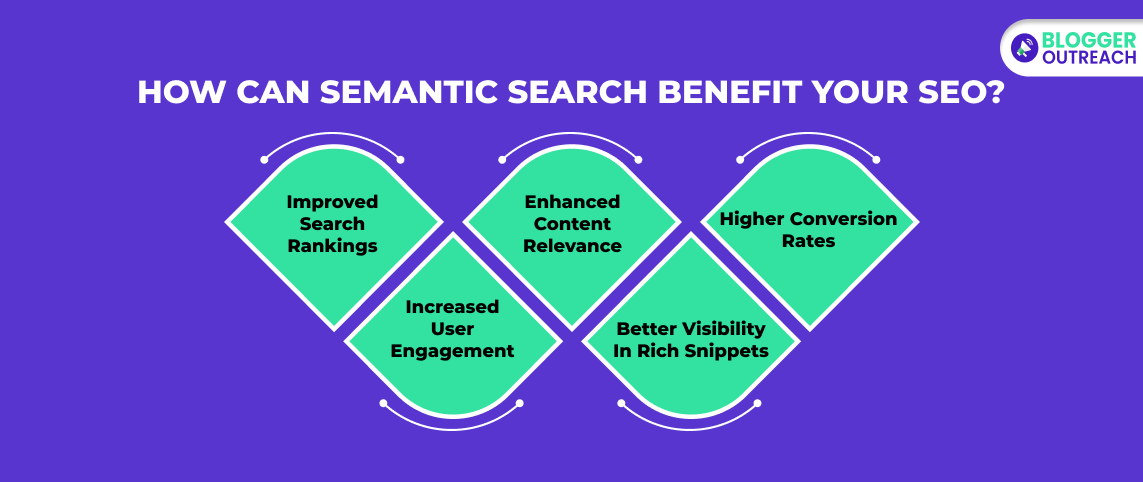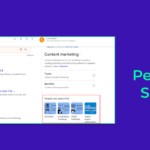Table Of Content
In recent times Google’s Knowledge Graph has been increasingly growing in complexity and size. However, most marketers are unaware that semantic search is one of the most important developments in the ever-changing field of search engine optimization (SEO).
Semantic search, as opposed to conventional keyword-based search, comprehends the meaning underlying a user’s query to provide more precise and contextually appropriate results. Moreover, this change in search technology has a big impact on how content is created and how websites are ranked.
Understanding semantic search and making necessary adjustments is crucial for businesses and marketers. This is because search engines such as Google prioritize the user experience to give users results of their respective queries.
In this post, we’ll discuss semantic search’s definition, importance, and effects on search engine optimization. After reading this, you will be able to properly optimize your content in the wake of this new technological search engine era. Let’s begin.
What Is Semantic Search?
Before we get into the depths of semantic search, we must understand what it is. Semantic search is a sophisticated technique used by search engines that understands the meaning of search queries, going beyond mere keyword matching.
To deliver more customized search results, it focuses on deciphering the intent, context, and relationships between words. This method helps search engines like Google better understand user queries by using artificial intelligence (AI), machine learning, and natural language processing (NLP) to understand the subtleties of language.
Moreover, semantic search considers the whole search’s context, including synonyms, user location, search history, and the question’s general meaning. This contrasts standard search algorithms that rely on exact keyword matches.
For example, a semantic search engine can determine that a user is looking for travel locations if they search for “best places to visit.” This is without even specifying the keywords “destinations” or “travel.”
Hence, by carefully understanding the search intent, semantic search provides relevant and accurate results. This boosts the overall user experience. Interestingly, this kind of sophistication in technology has made search engines more intuitive in understanding human language.
Why Is Semantic Search Important?
There is no doubt semantic search is highly important in the SEO landscape. Semantic search is crucial in improving user experience by providing them with the most accurate results. Previously, traditional search engines only relied on exact keyword matches. This resulted in the display of out-of-date or irrelevant content.
However, with the entry of semantic search, search engines now pay more attention to a query’s intent than to its exact wording. Moreover, due to this change, consumers now get results that are better tailored to their needs, even if their search terms are unclear or not exactly as the article is written.
Hence, you should employ semantic search to improve your audience engagement. Additionally, you can ensure high-ranking content in search results is well-structured, contextually rich, and created with the user’s intent in mind.
This implies that using a lot of keywords in your content is no longer a good way to get good SEO results. Rather, the focus is on adding value, delivering thorough answers to queries, and considering the larger context of content searches.
Moreover, semantic search aids in lowering linguistic ambiguity. For instance, the word “apple” can describe both the fruit and the IT business. Semantic search ensures users get the most relevant results by using context to understand the meaning.
It is more important than ever to produce relevant, high-quality content that matches user intent as search algorithms get better at deciphering human language.
How Does Semantic Search Impact SEO?

SEO is significantly impacted by semantic search, which moves the emphasis from keyword-centric tactics to more comprehensive strategies that put user intent, relevance, and quality of content first.
Search engines now consider a page’s overall context and relevance to the user’s query, as opposed to merely matching specific keywords. This means that your SEO efforts should be on producing content that provides thorough, logical answers to users’ questions.
Additionally, the requirement for structured data and schema markup is the impact of semantic search on your SEO. This increases the possibility of showing up in rich snippets or other enhanced search results by assisting search engines in understanding the context and relationships between various pieces of content on a website.
Furthermore, the significance of long-tail keywords has increased. They are more likely to match the natural language searches that consumers enter search engines. In the end, semantic search necessitates more user-focused SEO tactics.
Moreover, this entails providing information that anticipates users’ relevant inquiries and directly addresses their requirements. Thus, it makes the user experience more helpful and interesting. Hence, you must include semantic search to preserve and enhance search visibility as search engines continue to change.
How Can Semantic Search Benefit Your SEO?
There are many ways in which semantic search can benefit your SEO efforts. Let’s look at a few.
1. Improved Search Rankings
Semantic search improves your search engine rankings by giving preference to content that is both contextually relevant and in line with the user’s intent. Moreover, search engines will rank your website higher if you produce content that addresses user inquiries.
Instead of only matching keywords, this strategy focuses on deciphering the meaning behind search requests. Additionally, this improves the exposure of well-organized, intent-driven content.
2. Increased User Engagement
Semantic search increases user satisfaction and engagement on your website by providing more relevant search results.
Moreover, users are more inclined to explore other information on your website, become customers, and stay longer when they can easily discover what they want. Remember, increased interaction tells search engines that your content is worthwhile, which can raise your ranks even further.
3. Enhanced Content Relevance
Contextually rich content is encouraged by semantic search in addition to keyword-rich information. You can provide content that addresses several related questions by concentrating on the main idea and associated themes.
Moreover, this improves the likelihood that your content will show up in various search settings, increasing the adaptability and relevance of your website to a more extensive range of users.
4. Better Visibility In Rich Snippets
Structured data and semantic search are two major power sources for rich snippets. You can increase the likelihood that your content will show up in these improved search results, such as knowledge panels or highlighted snippets.
This can be done by optimizing it with semantic search in mind. This improves visibility and establishes your content’s credibility, bringing in more natural visitors to your website.
5. Higher Conversion Rates
Users are more likely to convert when they see content that exactly matches what they are looking for. The alignment between search queries and the solutions your content provides is improved by semantic search.
Moreover, you can create a smoother path by more efficiently attending to user demands from search to conversion. This can be a purchase, newsletter sign-up, or other desired action.
Best Practices To Optimize For Semantic Search
Now that you are familiar with the impact and benefits of semantic search on your SEO, let’s move on to the best practices. Here are a few of them:
1. Focus On User Intent
To optimize your content for semantic search, you must ensure it aligns with user intent. Moreover, you should recognize the issues or queries your target audience faces and then provide content that explicitly answers their needs.
This strategy increases the likelihood that your content will rank well by ensuring that it is pertinent to the search users are likely to make.
2. Use Structured Data
You can use schema markup and structured data to help search engines better understand the context of your content.
This facilitates the appearance of your pages in enhanced search features, like rich snippets. Remember, rich snippets are becoming increasingly crucial in semantic search.
3. Create Contextually Rich Content
You should provide in-depth coverage of a topic in your article rather than focusing only on keywords.
One great practice is to use synonyms and comparable terms, address possible follow-up inquiries, and include related subtopics. This increases the likelihood that your content will rank for a range of related queries by helping search engines comprehend the content’s larger context.
4. Optimize For Long-Tail Keywords
Semantic search frequently uses natural language queries more suited for long-tail keywords.
Additionally, you may increase the relevancy of your content to user inquiries and raise your chances of ranking by focusing on these terms since they will help you capture more specific search intent.
5. Leverage Internal Linking
To make it easier for search engines to grasp the connections between the various content on your website, you must use internal linking.
Moreover, you can improve your SEO performance in a semantic search environment by building a network of contextually relevant pages by linking similar content.
Wrapping Up
Semantic search emphasizes user intent, context, and relevancy, marking a dramatic change in the way search engines operate and provide results. Instead of only concentrating on targeting specific keywords, you must create content that addresses the more general queries of your audience.
Moreover, if you want to flourish in this new era of SEO, you must raise user engagement and boost search engine ranks. Semantic search also helps you boost your overall exposure and conversion rates on your website. Finally, you can stay ahead of the curve in the search engine optimization space by using the best practices of semantic search.
Read Also:








